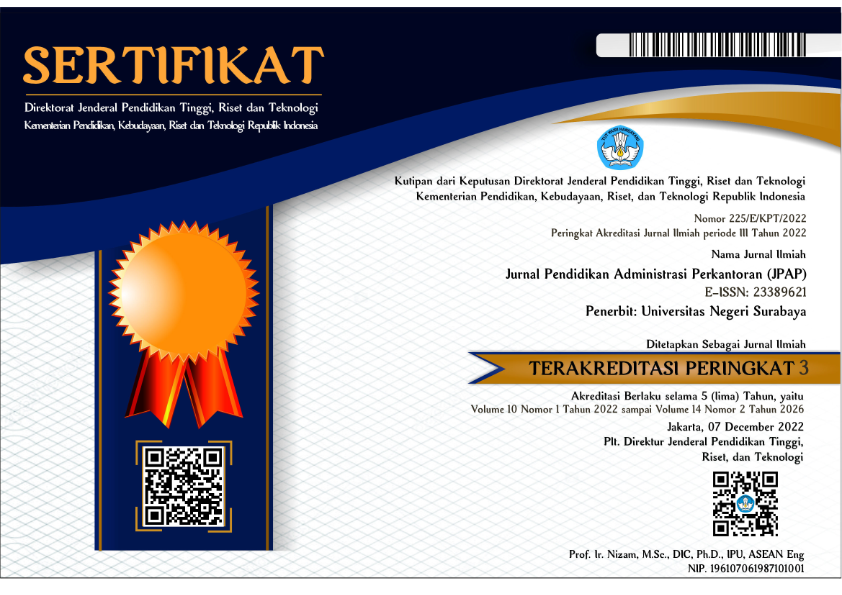COMPREHENSIVE FACTORS INFLUENCING THE SUCCESS OF INTERNAL QUALITY ASSURANCE SYSTEMS IN ELEMENTARY SCHOOLS: RESOURCES, LEADERSHIP, AND COMMUNITY SUPPORT
DOI:
https://doi.org/10.26740/jpap.v13n1.p440-450Abstract
Phenomenon/Issue: The effective implementation of the Internal Quality Assurance System (IQAS) in elementary schools faces numerous challenges, including resource limitations, inconsistent leadership quality, cultural acceptance issues, and inadequate stakeholder involvement.
Purpose: This study aims to identify the factors that influence successful IQAS implementation in elementary schools, focusing on resource availability, school leadership, cultural support, structured quality improvement processes (PDCA cycle), and the role of external stakeholders.
Novelty: While prior research has examined general aspects of quality assurance in education, this study uniquely analyzes the combined effects of resource allocation, school culture, and stakeholder collaboration, providing a holistic view of factors essential for IQAS success in elementary settings.
Research Methods: A qualitative case study approach was employed, including semi-structured interviews, observations, and document analysis from selected elementary schools. Data triangulation and thematic analysis were used to ensure reliability and depth in findings.
Results: Findings reveal that resource sufficiency, proactive leadership, a strong culture of quality, systematic application of the PDCA cycle, and active stakeholder engagement are critical to successful IQAS implementation.
Research Contributions: This research provides a framework for policymakers and school administrators to enhance IQAS in elementary schools, emphasizing the importance of integrated resource support, leadership development, cultural alignment, and community involvement to achieve sustainable quality assurance.
 Abstract views: 235
,
Abstract views: 235
, PDF Downloads: 216
PDF Downloads: 216









